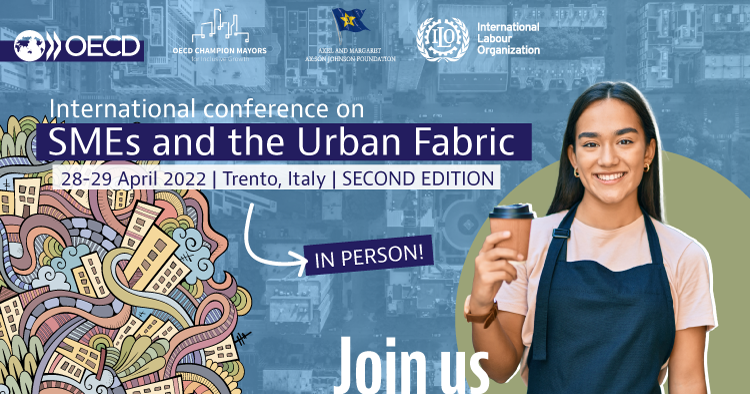Congress
Elisabete Martins
Scottish Graduate School of Social Science - Studentship opportunity
The Scottish Graduate School of Social Science (SGSSS) has a PhD studentship (funded by ESRC) on "Economic and social outcomes of work-based learning across economic sectors: The case of Foundation Apprenticeships in Scotland". For more information on eligibility criteria and how to apply, please see the link below
https://www.sgsss.ac.uk/studentship/economic-and-social-outcomes/
First Announcement of PRSCO 2022, Kyoto 1-4 AUG
Dear PRSCO councilors and friends,
On behalf of 2022 PRSCO chair of LOC, we are so happy to inform you that here is a first announcement of PRSCO 2022 Online Kyoto origin, 1-4 AUG 2022;
PRSCO website Announcement
http://www.lst.hokkai-s-u.ac.jp/~soushi-s/prsco/
LOC website
https://sites.google.com/view/prsco2022/prsco2021?authuser=0
We would like you to circulate these information and attached file to your colleagues and friends.
NARSC session at 2023 AEA meeting
Dear Colleagues,
Based on the success of the North American Regional Science Council (NARSC) session at the 2022 American Economic Association (AEA) meeting, the organizing committee is now inviting submissions of abstracts (1-3 pages) to be considered for presentation at the NARSC session at the 2023 AEA session.
Considering the significant and ongoing disruptions to supply chains both globally and domestically, the theme of the 2023 session will be “supply-chain disruption.” All techniques and applications that focus on this theme are highly encouraged.
The 2023 AEA meeting will take place in-person in New Orleans, LA, Jan. 6-8 2023: https://www.aeaweb.org/
If interested, please submit your detailed abstract (1-3 pages), including authors’ name(s), affiliation(s) and contact information to Kelsey McDaid at This email address is being protected from spambots. You need JavaScript enabled to view it. by May 10, 2022.
There is no fee for submission. A fee is to be paid to AEA once your paper is selected.
We look forward to seeing you at the second AEA-NARSC session!
With best regards,
Sandy Dall’erba, University of Illinois Urbana-Champaign
Christa Court, University of Florida
Bill Ridley, University of Illinois Urbana-Champaign
John Sporing, North American Regional Science Council (NARSC)
Call for applications for NARSC/NERSA Summer School, June 26-July 1, 2022, New York
Call for Applications to the Inaugural NARSC/NERSA Summer School:
“An Integrated Assessment of Climate Change Adaptation Plans for New York City’s Waterfront.”
The North American Regional Science Council (NARSC), in collaboration with the Northeastern Regional Science Association (NERSA), and Cornell AAP NYC, is pleased to announce that the inaugural NARSC/NERSA summer school will be held on the Cornell Tech Campus on Roosevelt Island in New York City from June 26th to July 1st 2022.
The thematic focus of this year’s summer school will be “An Integrated Assessment of Climate Change Adaptation Plans for New York City’s Waterfront.”
Program at a Glance
This Summer School will provide an immersive experience for 12 to 15 Ph.D. students, or post-doctoral researchers who have completed their doctoral studies within the last five years, to work together in interdisciplinary teams to examine aspects of implementing the “New York City Comprehensive Waterfront Plan” and the “Financial District and Seaport Climate Resilience Master Plan” in the Lower Manhattan Waterfront. Tutorials on theories and methods relevant to this work will be provided. Participants will be expected to study background materials prior to the summer school and collaborate with other participants after the event to complete a project report and scholarly papers for presentation at the November 2022 NARSC meetings in Montreal and submission to a regional science journal for publication in a special issue.
Key Dates
Call for Applications April 4th
Application Deadline May 1st May 8th
Notification of Acceptance May 15th
Registration Deadline May 25th
Fee Payment Deadline June 15th
Details on the prospective program, the application and admission process, registration fees, and Summer School staffing can be found at http://neregionalscience.org/. Scholarship funding is available.
Contacts
NERSA Administration This email address is being protected from spambots. You need JavaScript enabled to view it.
John Carruthers This email address is being protected from spambots. You need JavaScript enabled to view it.
Kieran Donaghy This email address is being protected from spambots. You need JavaScript enabled to view it.
Shriya Rangarajan This email address is being protected from spambots. You need JavaScript enabled to view it.
ERSA Monthly E-news - March 2022
|
In Memoriam: Prof. Tatsuhiko (“Tats”) Kawashima (1940-2021)
 Professor Tatsuhiko (“Tats”) Kawashima died on November 4, 2021. He earned bachelors and masters degrees in economics from the University of Tokyo and received the Ph.D. in Regional Science from the University of Pennsylvania in 1969. He was then appointed Assistant Professor of Regional Science at Penn. He resigned from the position in 1973 to return to Japan as Assistant Professor of Economics at Gakushuin University. He was promoted to professor at Gakushuin in 1976. He took emeritus status in 2011. In addition to his research on regional economic development, Professor Kawashima engaged in humanitarian work installing clean water and sewage infrastructure in mountainous northern Thailand with his students, and he was a member of an advisory panel to the Ministry of Land, Infrastructure, Transport and Tourism in Japan. He is survived by his daughter, Crown Princess Kiko and his son-in-law Prince Fumihito, and three grandchildren—the former Princess Mako, Princess Kako and Prince Hisahito.
Professor Tatsuhiko (“Tats”) Kawashima died on November 4, 2021. He earned bachelors and masters degrees in economics from the University of Tokyo and received the Ph.D. in Regional Science from the University of Pennsylvania in 1969. He was then appointed Assistant Professor of Regional Science at Penn. He resigned from the position in 1973 to return to Japan as Assistant Professor of Economics at Gakushuin University. He was promoted to professor at Gakushuin in 1976. He took emeritus status in 2011. In addition to his research on regional economic development, Professor Kawashima engaged in humanitarian work installing clean water and sewage infrastructure in mountainous northern Thailand with his students, and he was a member of an advisory panel to the Ministry of Land, Infrastructure, Transport and Tourism in Japan. He is survived by his daughter, Crown Princess Kiko and his son-in-law Prince Fumihito, and three grandchildren—the former Princess Mako, Princess Kako and Prince Hisahito.
Faculty position in urban economics - IDHEAP - University of Lausanne – Switzerland
|
The Swiss Graduate School of Public Administration (IDHEAP) of the University of Lausanne (Switzerland) invites applications for a position of Professor in Urban Economics. |
|
The complete job description and the application portal are available here: https://www.unil.ch/idheap/Prof-urban-economics |
|
Founded in 1981, IDHEAP is the largest university and interdisciplinary training, research and expertise structure in Switzerland dedicated entirely and exclusively to the public and parapublic sector. |
|
Since 2014, the Institute has been part of the University of Lausanne, which has nearly 5,000 employees and 17,000 students. A leading international teaching and research institution, UNIL promotes excellence, personal recognition and accountability. |
|
If you have any questions, please contact us at: This email address is being protected from spambots. You need JavaScript enabled to view it. |
The New Issue of Regional Statistics is already Available! (2022, VOL 12, No 2)
THE NEW ISSUE OF REGIONAL STATISTICS IS ALREADY AVAILABLE!
We are pleased to inform you that a new issue of the Regional Statistics has been released and now it’s avaiable online.
https://www.ksh.hu/terstat_eng_current_issue
REGIONAL STATISTICS, 2022, VOL 12, No 2.
STUDIES
Szabolcs Nagy – Mariann Veresné Somosi: The relationship between social innovation and digital economy and society
https://www.ksh.hu/statszemle_archive/regstat/2022/2022_02/rs120202.pdf
Eugenia Riaño – Antonio Rey – Martín Hansz – Fernando Massa: Montevideo journey-to-work flows, 2016: A doubly constrained gravity model with random effects
https://www.ksh.hu/statszemle_archive/regstat/2022/2022_02/rs120201.pdf
Pavol Ďurček – Gabriela Nováková – Ingrid Bučeková: Modelling the customer potential of retail food stores: A case study from the Turiec region in Slovakia, 2020
https://www.ksh.hu/statszemle_archive/regstat/2022/2022_02/rs120208.pdf
Elimdar Bayramov: Modelling travel intention in conflict-ridden destinations: the example of Turkey, 2020–2021
https://www.ksh.hu/statszemle_archive/regstat/2022/2022_02/rs120207.pdf
Ahmadov Vusal: Comparative study of labour market development in post-socialist Hungary and Azerbaijan since 1990
https://www.ksh.hu/statszemle_archive/regstat/2022/2022_02/rs120203.pdf
Dávid Hajdú – Gábor Koncz: Employment data of participants in supported adult training for jobseekers and their territorial pattern in Hungary, 2010–2020
https://www.ksh.hu/statszemle_archive/regstat/2022/2022_02/rs120205.pdf
Péter Kovács – Miklós Lukovics: Factors influencing public acceptance of self-driving vehicles in a post-socialist environment: Statistical modelling in Hungary
https://www.ksh.hu/statszemle_archive/regstat/2022/2022_02/rs120206.pdf
Sami Khedhiri: Comparison of SARFIMA and LSTM methods to model and to forecast Canadian temperature
https://www.ksh.hu/statszemle_archive/regstat/2022/2022_02/rs120204.pdf
Join us to our social networking sites:
Job opportunity at the University of Coimbra – Faculty of Economics; two positions of Assistant Professor in the field of Economics –Applications until 2022-04-08
Job opportunity at the University of Coimbra – Faculty of Economics;
two positions of Assistant Professor in the field of Economics
Applications until 2022-04-08
More information at: https://apply.uc.pt/P053-21-11435
SMEs and the Urban Fabric Conference | 28-29 Apr. 2022, Trento, Italy
|
The OECD Centre for Entrepreneurship, SMEs, Regions and Cities, its Champion Mayor for Inclusive Growth Initiative and Trento Centre for Local Development, in collaboration with the SME Unit of the ILO Enterprises Department and the Ax:son Johnson Foundation, are pleased to invite you to the Second international conference on SMEs and the Urban Fabric
Register for in-person participation by 22 April 2022. |
|
Register now! |
|
IT’S TIME TO GET TOGETHER AGAIN! |
|
|
The conference provides an opportunity for policy makers, academics and practitioners to gather and discuss how cities can be a vibrant place that supports their SMEs and entrepreneurs, what lessons can we take away from the COVID-19 pandemic for SME support, and what will the future hold for SMEs in cities. |
|
ATTEND THE CONFERENCE |
|
|
This conference brings together researchers, policy makers and practitioners to discuss ways in which policies, regulations and planning can help create an environment for thriving entrepreneurship and SMEs, while at the same time leveraging these entrepreneurs for local development. The agenda combines presentations of academic research with practical examples from different countries and cities. Every session will allow for open discussion with all participants and long hospitality breaks will provide room to exchange bilaterally with the speakers and other participants. The conference will also provide a dedicated space for participants to present their country’s, region’s or city’s efforts to provide a conducive environment for their SMEs and entrepreneurs or the measures taken to directly support them (please indicate your interest during registration). The space will allow for dialogue with participants during the coffee and lunch breaks and complements the main programme. Participants can also indicate their interest to present in the Policy Speed Session planned for the second day of the conference. The event will be in-person respecting all COVID-19-related health guidelines by the Italian authorities. For those unable to join in person, a partial live streaming of the event will be available upon registration. The main event language will be English. Italian/English interpretation will be available onsite for in-person participants.
|
|
EXPLORE THE SESSIONS |
|
|
|
|
MEET THE SPEAKERS |
|
|
|
|
QUESTIONS? CONTACT US |
|
|
OECD Trento Centre for Local Development |
|
Register now! |
|
|
The OECD Centre for Entrepreneurship, SMEs, Regions and Cities provides comparative statistics, analysis and capacity building for local and national actors to work together to unleash the potential of entrepreneurs and small and medium-sized enterprises, promote inclusive and sustainable regions and cities, boost local job creation, and support sound tourism policies. www.oecd.org/cfe | @OECD_local | Linkedin | CFE Newsletter | Cogito Blog |
About Us
The Regional Science Association International (RSAI), founded in 1954, is an international community of scholars interested in the regional impacts of national or global processes of economic and social change.

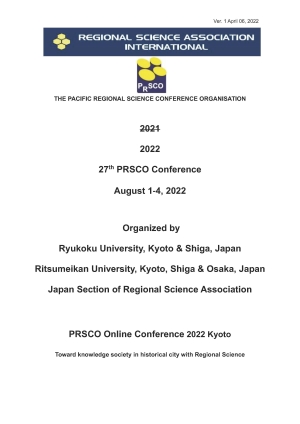
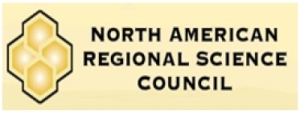
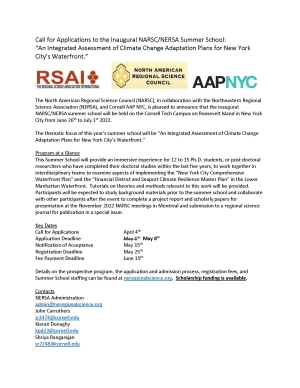
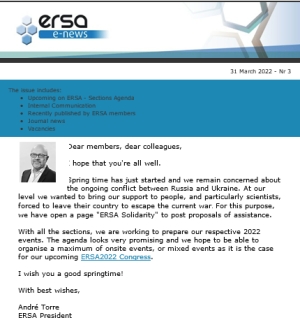

 Dear members, dear colleagues,
Dear members, dear colleagues,















